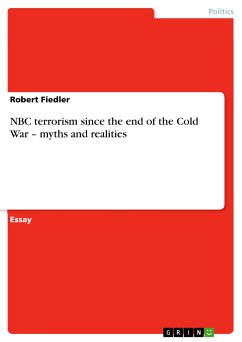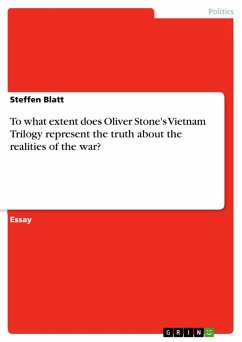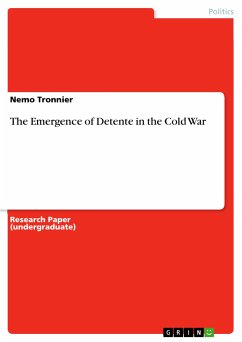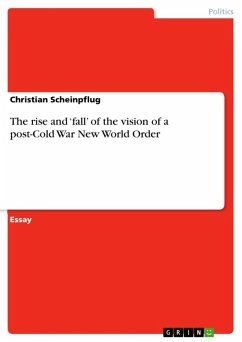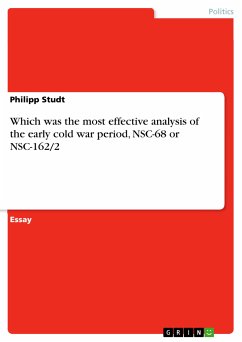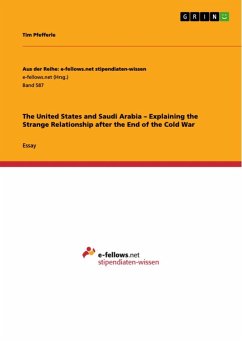Essay from the year 2009 in the subject Politics - Topic: Peace and Conflict, Security, grade: 1,9, Macquarie University, language: English, abstract: Moreover, the large-scale attack of 9/11 proved that the former generally accepted maxim of “terrorists want a lot of people listening and not a lot of people dead” (Jenkins, 1985, p. 6) is not meeting the reality anymore. However, it is in question if these incidents really point towards a trend among terror groups to obtain and use WMD in order to achieve their political or religious aims. Nonetheless, WMD-terrorism became a political priority, particularly in the United States since the Clinton administration declared “(t)he acquisition of weapons of mass destruction by a terrorist group is unacceptable. There is no higher priority than preventing the acquisition of this capability or removing this capability from terrorist groups” (Clinton, 1995). Regardless of this political development, there is an extensive scholarly debate whether WMD-terrorism poses a new apocalyptical threat due to the “availability of information and expertise, heightened frustration of terrorists, demonization of target population, or messianic vision” (Ivanova & Sandler, 2007, p. 274) or whether the use of chemical, biological, nuclear or radiological agents (CBRN) by terrorist groups is exaggerated by the media or governmental and law enforcement agencies. However, it is necessary to recognize the differences between radiological / nuclear and chemical / biological agents since “these weapons differ greatly in their ease of production, in the challenges they pose for deterrence, and in the effectiveness of defensive measures against them” (Chyba, 2002). The purpose of this paper is not to present a comprehensive survey of the possible threat assessments or potential counter measures. Rather, it will analyze what kind of terrorist groups are more likely to use CBRN for their purposes and what motivation determines the decision either to use or to restrain from the use of CBRN agents. Furthermore, this essay will examine the actual capabilities necessary to weaponize chemical, biological, radiological and nuclear material and the difficulties for terrorists to get to this stage.
